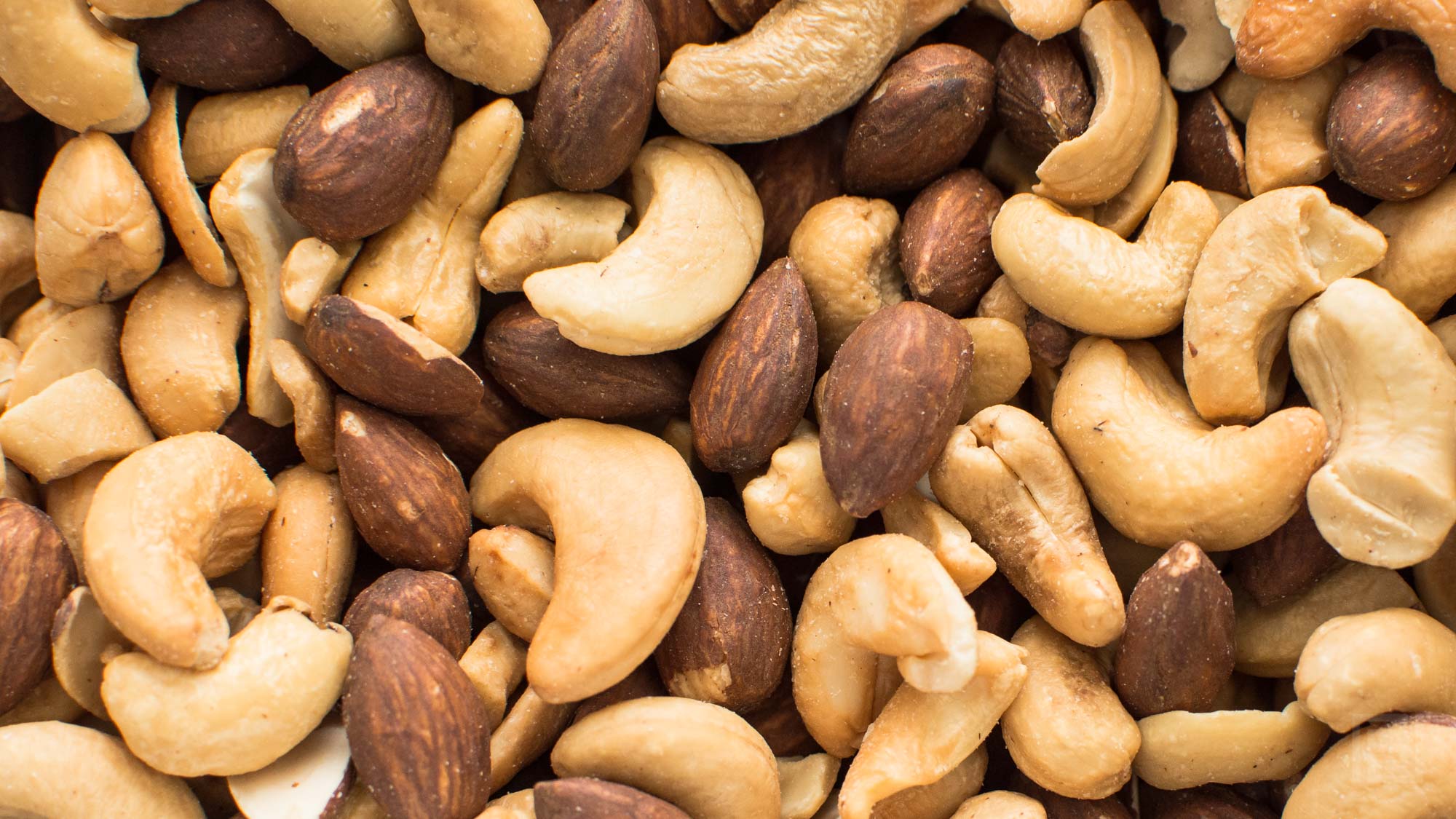Nuts & Gut Health
Sam Stephens
February 2020

How a regular intake of nuts can help support a healthy gut microbiome by serving as a great prebiotic.
As a linked system, the gut-brain axis is collectively responsible for the synthesis of many different essential compounds (neurotransmitters, hormones, enzymes, and proteins), the absorption of food needed for energy and muscle growth/repair, the strength of our immune system, our mood/outlook on life, and all baseline cognitive abilities. While only two organ systems, the gut-brain axis controls our quality of life. If these two systems are impaired, so are we.
To ensure our intestinal microbiome is healthy and thriving, we can support it by taking probiotics and prebiotics. Probiotics, like yogurt, contain live bacterial cultures that immediately and directly contribute to our gut environment when consumed. In contrast, prebiotics provide food/substrates to existing bacteria and help them multiply. Insoluble plant fiber is an example of a prebiotic.
While nuts can provide a variety of health benefits, their value as a prebiotic is primarily due to a high fiber content, abundance of unsaturated fatty acids, and a variety of highly bioactive compounds (tocopherols, phytosterols, and phenolic compounds). And because whole nuts are oftentimes not chewed completely during ingestion, these substrates for a happy and healthy gut microbiome can provide prebiotic nutrients to the entire length of our digestive tract.
Some research suggests that the bacteria cultivated by increasing nut consumption can indirectly help protect us against:
- Type 2 diabetes
- Cardiovascular disease
- Neurodegenerative diseases (Parkinson’s & Alzhiemer’s)
- Cancer
- Cellular inflammation
More studies are needed in this area of nutrition, but enough data supports the link between beneficial gut bacteria and nut consumption to ignore it. However, exactly what nuts are best and how they should be consumed is less clear. I suggest that you work to incorporate a variety of nuts (cashews, walnuts, almonds, pistachios, etc) and preparation styles (roasted, raw, nut butters, etc) into your diet and aim for 1-2 servings per day.
Experiment by manipulating different variables. Find out what works best for you. Share what you discover. Have fun.
Reference: